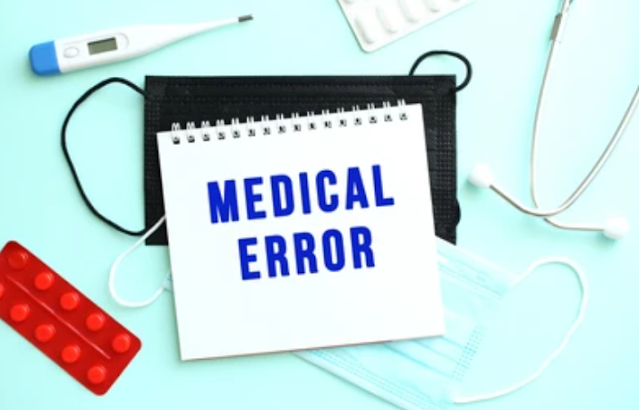Medical Records Errors: Impacts and Legal Recourse

Medical Records Errors: Impacts and Legal Recourse
Medical records errors occur when there are mistakes, inaccuracies, or omissions in a patient's medical records. These errors can have significant impacts on patient care, treatment decisions, and overall healthcare outcomes. Medical records serve as a crucial source of information for healthcare providers, and errors in these records can lead to misdiagnosis, improper treatment, medication errors, delays in care, and other adverse effects. Understanding the impacts of medical records errors and the available legal recourse is essential. Here's a detailed explanation:
Impacts of Medical Records Errors:
- a. Misdiagnosis and Delayed Treatment: Inaccurate or incomplete medical records can lead to misdiagnosis or delayed diagnosis, as healthcare providers rely on the information in the records to make informed decisions about a patient's condition.
- b. Medication Errors: Errors in medication documentation or allergies listed in the medical records can result in prescribing the wrong medication or an incorrect dosage, potentially leading to adverse drug reactions or treatment complications.
- c. Treatment Errors: Inaccurate or missing information in medical records can lead to improper treatment decisions, surgical errors, or unnecessary procedures, putting the patient's health at risk.
- d. Lack of Continuity of Care: Incomplete or erroneous medical records can hinder the seamless continuity of care between healthcare providers, resulting in fragmented or ineffective treatment.
- e. Legal and Insurance Issues: Inaccurate medical records can complicate insurance claims, disability applications, or legal proceedings related to medical malpractice or personal injury cases.
Common Types of Medical Records Errors:
- a. Documentation Mistakes: Errors in documenting patient information, including personal details, medical history, allergies, or current medications.
- b. Illegible or Incomplete Entries: Handwritten notes or entries that are difficult to read or missing critical information can lead to misunderstandings and potential errors in patient care.
- c. Transcription Errors: Mistakes made during the transcription process when converting dictated notes into written records can introduce inaccuracies.
- d. Electronic Health Record (EHR) Errors: Technical issues or human errors in electronic health record systems can result in data entry mistakes or information being attributed to the wrong patient.
- e. Failure to Update Records: Neglecting to update medical records with new test results, treatment changes, or patient status updates can result in outdated or incomplete information.
Legal Recourse for Medical Records Errors:
- a. Requesting Corrections: Patients have the right to request corrections or amendments to their medical records if errors or inaccuracies are identified. This can be done by contacting the healthcare provider or facility responsible for maintaining the records.
- b. Filing a Complaint: Patients can file a complaint with the appropriate regulatory or oversight body, such as a state medical board or healthcare accreditation organization, to report medical records errors and seek resolution.
- c. Medical Malpractice Lawsuits: In cases where medical records errors lead to significant harm or injury, patients may pursue legal action by filing a medical malpractice lawsuit. They must establish that the errors were negligent and caused harm or adverse outcomes.
- d. Consultation with an Attorney: It is crucial for patients who have experienced significant harm due to medical records errors to consult with an experienced medical malpractice attorney. The attorney can assess the case, gather evidence, and guide the patient through the legal process.
Preventing Medical Records Errors:
- a. Patient Engagement: Patients should actively participate in their healthcare by reviewing their medical records for accuracy, providing updated information, and notifying healthcare providers of any discrepancies or errors.
- b. Communication and Follow-up: Effective communication between patients and healthcare providers can help ensure that accurate and complete information is documented in medical records.
- c. Training and Quality Control: Healthcare facilities should implement robust training programs for staff members involved in medical record documentation, as well as establish quality control measures to review and verify the accuracy of records.
- d. Embracing Technology: The adoption of electronic health record systems with built-in safeguards, such as validation checks and standardized data entry, can reduce the risk of errors and improve record accuracy.
It's important to note that medical records laws and regulations may vary by jurisdiction. Therefore, consulting with an attorney who specializes in medical malpractice or healthcare law can provide personalized advice based on the specific laws applicable in your situation.














No comments